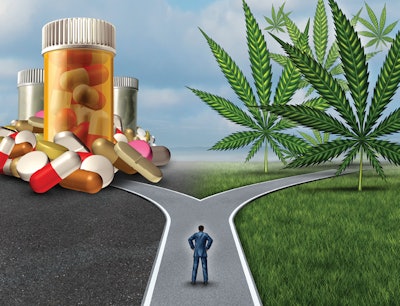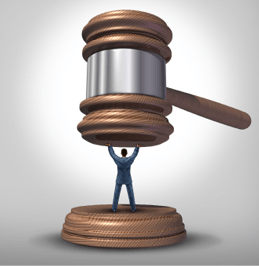
Currently, cannabis is still a Schedule I Drug under the Controlled Substances Act, a classification that means cannabis has no medicinal value and an extremely high potential for abuse. At the same time, the U.S. Government owns the infamous Patent #6630507, entitled “Cannabinoids as antioxidants and neuroprotectants.”
The patent claims exclusive rights on the use of cannabinoids for treating neurological diseases, such as Alzheimer’s and Parkinson’s, and diseases caused by oxidative stress, such as heart attack and Crohn’s disease.
And now, on the eve of the DEA’s decision on whether or not to reschedule cannabis to a Schedule II drug (said to be done by mid-year, but at press time no decision had been announced), one must weigh the possibilities of whether or not rescheduling the plant to a Schedule II classification would be a positive move for the cannabis industry.
The Good Possibilities
“Reclassifying marijuana would make it easier for researchers to work with the plant, which is currently subject to strict limitations and officially can be acquired only from a single government garden,” reported USA Today.
So that’s a positive, right? Scientists will, for the first time, have a much easier time conducting (and getting funding for) significant research with the plant to document its said medicinal qualities.
Another positive would be that physicians would be permitted to give prescriptions for cannabis to their patients instead of “recommendations.” Currently, doctors can only recommend the drug, since cannabis is still a Schedule 1 and considered federally illegal.
A few more pluses for the industry: Rescheduling marijuana could lift the restrictions of state boundaries, open up the industry to import-export and help increase the potential for a nationwide, regulated market, which we desperately need. Rescheduling could welcome marijuana into the mainstream economy.
The Bad Possibilities
“Contrary to popular belief, rescheduling doesn’t automatically ease federal criminal penalties, nor would it make the manufacture, possession or distribution of marijuana legal,” wrote Leafly’s Jeremy Kossen in a recent article.
There’s still the possibility of arrest. Laws still have to get on the books that change this. (Descheduling cannabis would do that.)

Nor does it solve the conflict between the states and federal government. “Descheduling would be ideal, but ultimately what we need is overall reform of the [antiquated], non-scientific scheduling system,” said Bill Piper, senior director of national affairs at the Drug Policy Alliance, in the Leafly article.
Then there’s Big Pharma.
Big Pharma has a long history of charging exorbitant prices for life-saving medicines. Just look at hated 32-year-old CEO of Turing Pharmaceuticals, Martin Shkreli, who, overnight, jacked the price of a life-saving AIDS drug called Daraprim from $13.50 a pill to $750, as CNN Money reported.
Then there are “government-granted monopolies” — defined on Wikipedia as “a form of coercive monopoly by which a government grants exclusive privilege to a private individual or firm to be the sole provider of a good or service.”
The government does this to help speed up research and development of new drugs, or as Wikipedia cites, “Advocates for government-granted monopolies often claim that they ensure a degree of public control over essential industries, without having those industries actually run by the state.” But it turns into a financial windfall for the company that gets the monopoly if the patented drug is successful.
If said company completely controls a life-saving drug (U.S. Cannabinoid Patent #6630507, say, for example), then they can charge whatever they want for it, and there is little anyone can do about it.
Then there are FDA regulations. “If the federal government determines that medical marijuana must be subjected to FDA approval, companies would have to enter a process that can take years to complete and cost more than $1 billion per product,” reported Rolling Stone. “Few, if any, cannabis companies in the U.S. have the resources for that, which might open the door for Big Pharma to muscle in and take over the business.”
A lot of money is on the line, and when that happens, the people who hold the patents will have a lot of leverage. What happens to the marketplace when companies with tons of resources start throwing their weight around?
The fear that rescheduling would essentially wipe out the existing medical marijuana marketplace that has been established by various states is unfounded, however. As the Brookings Institution explained in a recent article, the plant’s schedule or reschedule is set by the Controlled Substances Act, which is a federal law. The medical programs in existence are legal under state laws.
So does the good outweigh the bad? Reclassification could get us closer to that dream of the mainstream market and new opportunities for sales and growth.
But if cannabis does get rescheduled, I’m going to be looking for who’s holding those patents. Whoever it is will have a huge chance to shape the future of a drug, or multiple drugs, that could save lives.

















